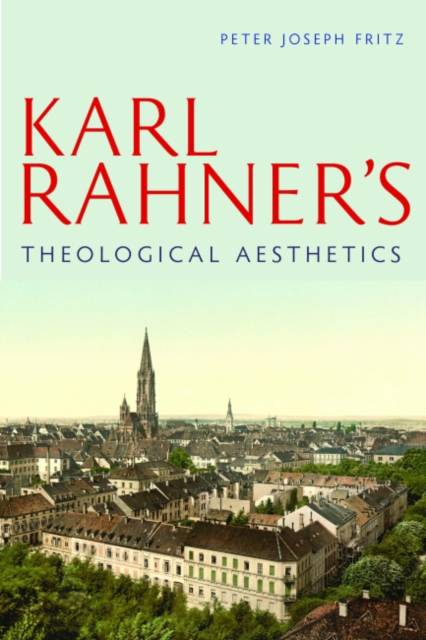
- Afhalen na 1 uur in een winkel met voorraad
- Gratis thuislevering in België vanaf € 30
- Ruim aanbod met 7 miljoen producten
- Afhalen na 1 uur in een winkel met voorraad
- Gratis thuislevering in België vanaf € 30
- Ruim aanbod met 7 miljoen producten
Zoeken
Omschrijving
This innovative book discloses Karl Rahner's foremost achievement: discovering and delineating an ethos of Catholicism, a multi-faceted and comprehensive approach to life in Christ. Karl Rahner's Theological Aesthetics does so by placing the German Jesuit and his teacher, philosopher Martin Heidegger, into a richly detailed dialogue on aesthetics. The book treats classic Rahner topics such as anthropology and Christology. But it breaks new ground by exploring themes such as angels, Mary, and the apocalypse, juxtaposed with analogous philosophical topics in Heidegger. Peter Joseph Fritz reveals that Rahner, contrary to a widespread opinion, did not "turn to the subject." Rather, Rahner meticulously avoided the spirit of modern subjectivity. In doing so, Rahner follows paths cleared by Heidegger. The counter-subjective thrust of Rahner's thought has aesthetic implications. In fact, Rahner's turn away from modern subjectivity begins with his philosophical dissertation, Spirit in the World, which this work shows to be an aesthetic text through and through. Rahner's aesthetics in Spirit in the World and other works prove distinctive because of its resonance with a Heideggerian variety of the sublime, which Rahner first encounters during Heidegger's lectures on the poetry of Friedrich Hölderlin. Rahner's improvement upon the Heideggerian sublime gradually matures over the course of Rahner's career into a complex strategy of resistance toward Heideggerian thinking. This becomes most clear in Rahner's eschatology, which is an apocalyptic discourse that rejects Heidegger's own apocalypse of being's history. Karl Rahner's Theological Aesthetics offers a fresh and innovative re- consideration of the classic pairing of Rahner and Heidegger. By doing so, it contributes to ongoing conversations on theological aesthetics, the interfacing of postmodernity and theology, and, most of all, on the enduring legacy of Rahner himself.
Specificaties
Betrokkenen
- Auteur(s):
- Uitgeverij:
Inhoud
- Aantal bladzijden:
- 312
- Taal:
- Engels
Eigenschappen
- Productcode (EAN):
- 9780813225937
- Verschijningsdatum:
- 8/04/2014
- Uitvoering:
- Hardcover
- Formaat:
- Genaaid
- Afmetingen:
- 144 mm x 227 mm
- Gewicht:
- 535 g

Alleen bij Standaard Boekhandel
+ 152 punten op je klantenkaart van Standaard Boekhandel
Beoordelingen
We publiceren alleen reviews die voldoen aan de voorwaarden voor reviews. Bekijk onze voorwaarden voor reviews.











